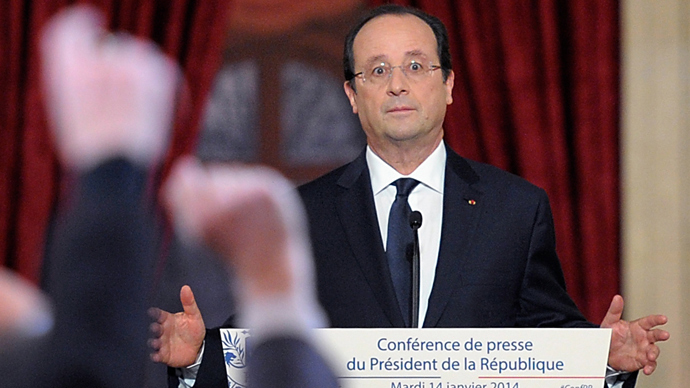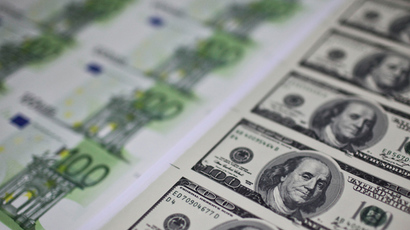Hollande pledges €50bn public spending cut in 2015-17

France will cut public spending by 50 billion euros ($68 billion) in 2015-2017 in a bid to rebuild confidence in the French economy, President Francois Hollande said.
"In 2014, this year, we will save 15 billion," Hollande said as he held an annual press conference to discuss policy and the economy at the Elysee presidential palace in Paris. "In 2015 to 2017 we will unblock 50 billion more. This has never been done before."
The savings would be achieved by a review of all public spending, like the operations of local authorities, Hollande said, pledging however to preserve social welfare.
The cuts would be equal to 4 percent of overall public spending, which is the second-highest in Europe. At least 18 billion euros would be cut in 2015, 18 billion in 2016 and 17 billion in 2017.
"France has lost its economic strength over the last 10 years," he said. “We must reduce public spending to reduce public debt, lower taxes and release the pact of responsibility.”
The announcement reiterates Hollande’s pledges made during his New Year’s address to the nation, in which he promised to cut public spending, reduce taxes, combat unemployment and ease the burden of labor costs on business.
The so-called "responsibility pact" for corporations would be aimed at lowering their labor charges in return for boosting recruitment as part of a raft of measures to reduce unemployment.
As a part of new reforms, Hollande said, business will no longer finance family welfare, representing a €30 billion ($41 billion) cut in levies paid by firms on labor.
While reforms first outlined in the New Year’s address were interpreted as a shift to a stronger reformist program, Hollande said the moves were not a change of policy but signal a need to go “faster, further and deeper.”
“It is imperative that France restores the power of its economy. There is no time to lose. France must rebound to retain its influence in the world and in Europe,” he said.
Hollande, now deeply unpopular over his handling of the economy, came to office in 2012 vowing to avoid harsh austerity measures carried out in neighboring Spain and Italy. However, this approach has left public debt and budget deficit above EU limits.














